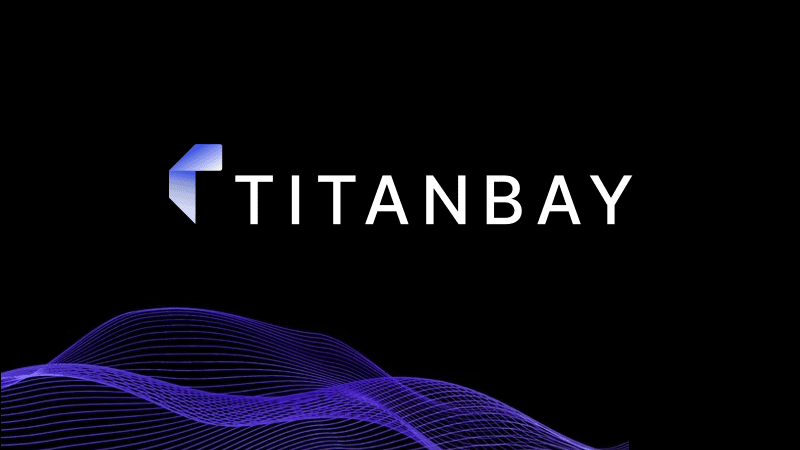Press release: Titanbay named 'Most Generous Company 2025'
Private markets platform, Titanbay has been crowned as the UK’s Most Generous Company thanks to its employee benefits offering.
Manage your equity and shareholders
Share schemes & options
Fundraising
Equity management
Start a business
Company valuations
Launch funds, evalute deals & invest
Special Purpose Vehicles (SPV)
Manage your portfolio
Model future scenarios
Powerful tools and five-star support
Employee share schemes
Predictable pricing and no hidden charges
For startups
For scaleups & SMEs
For larger companies
Ideas, insight and tools to help you grow
4 min read
 Rebecca Appleton
:
01 November 2024
Rebecca Appleton
:
01 November 2024

This article was published over four months ago. Some of the changes discussed are now in effect. For the latest information, please visit Gov.uk
The much-anticipated 2024 Autumn Budget - the first from a Labour government in over a decade - has been delivered. The key question now is, how will startups and SMEs fare?
One of the standout decisions was the preservation of Business Asset Disposal Relief (BADR). There had been widespread concern among entrepreneurs and investors over speculation that BADR would be abolished entirely.
BADR, a form of tax relief on the disposal of business assets, is particularly advantageous for business owners, who can sell shares and other business assets at a favourable tax rate.
This relief is essential in schemes like the Enterprise Management Incentive (EMI), which incentivises and rewards employees with share options - making it an excellent tool for talent retention.
Rather than eliminating BADR, the government has chosen to raise the rate incrementally over the next few years. Currently capped at 10%, BADR will increase to 14% in April 2025 and 18% in April 2026.
Crucially, the current £1 million lifetime limit on gains will be retained, which should come as a relief to entrepreneurs who were worried about potential changes.
The difference in tax rates under BADR versus standard Capital Gains Tax (CGT) remains substantial.
While CGT itself is set to rise (from 10% to 18% for the lower rate and from 20% to 24% for the higher rate), BADR still offers significant savings. As our founder and CEO Ifty Nasir told Sifted:
This is a victory for thousands of workers with access to equity-linked rewards like employee share schemes.
Tina McKenzie, Policy Chair of the Federation of Small Businesses (FSB), lauded the decision to retain the £1 million lifetime limit on gains:
"The right decision has been taken to retain entrepreneurs’ relief (now branded Business Asset Disposal Relief) up to £1 million, which is something we have campaigned hard for.
"Although the level of relief will gradually reduce over time, resulting in more tax being paid in the future on business sales, we’re pleased to see a differential has been kept,” she said.
As well as a 6.7% increase in the National Living Wage, the Budget also pushed up employer National Insurance contributions (NICs) from 13.8% to 15%, effective April 2025.
The Secondary Threshold - the level of earnings at which employers become liable to pay NI - will drop from £9,100 to £5,000 annually.
While this increase is intended to bolster public funding, it places an additional cost burden on businesses, especially those with larger workforces.
However, there is a measure of protection for smaller firms, many of which are highly sensitive to labour costs. The Employment Allowance, which provides relief on employer NI contributions, will rise from £5,000 to £10,500. Additionally, the allowance cap of £100,000 will be removed, broadening eligibility for more businesses.
For many SMEs, this translates into the ability to employ up to four full-time staff members at the National Living Wage without bearing additional employer NI costs.
Considering that small businesses make up the majority of employers in the UK, this adjustment is a welcome development and should go some way to shielding SMEs from the full brunt of NI increases.
It’s not all doom and gloom for those who will be subject to increased NI contributions. Some of the burden could be offset by shelving traditional bonus payments in favour of a share scheme.
The Enterprise Investment Scheme (EIS): EIS and Venture Capital Trust (VCT) schemes are confirmed to continue through to at least 2035. For early-stage businesses looking to attract investment, this is a win for them and potential investors.
Top tip: If you're thinking of utilising EIS, get advance assurance first!
The main rate of corporation tax will be capped at 25%. Companies with taxable profits below £250,000 will be relieved to hear that the small profit rate of 19% will remain as it is, as will the thresholds for marginal relief.
Despite much speculation and concern as to what the Autumn Budget would mean for pensions, changes have been minimal. David Brooks, Head of Policy at independent financial services consultancy Broadstone, commented:
“While it might have been a good opportunity to shed some light on the upcoming pensions review, the minimum wage boost is a definite positive takeaway and should hopefully enable more members to save via auto-enrolment, boosting their pension savings.”
The Autumn Budget brought with it continued support and funding to help SMEs embrace the technology they need to work smarter, not harder.
The government will extend the SME Digital Adoption Taskforce and soon announce details of a £4m pilots package to support more SMEs’ digitisation efforts.
Businesses not already boarding the digitisation train, best get on right away!
Soon enough, all companies will use software for Companies House filings. Vestd is fully synced to Companies House so customers can file essential forms, statements and more, in a flash.
While the increase in NICs will be a bitter pill to swallow for many businesses and the increase of the minimum wage may cause companies to rethink their staffing strategies and hiring plans, the Autumn Budget did include measures to offset the costs for small businesses.
With BADR mostly untouched, they can still rely on schemes like EMI to reward their workforce - ensuring that teams are invested in, and benefiting from, the company's success. As Ifty Nasir told the Financial Times:
While founders were the focus of much of the discussion around BADR ahead of the Autumn Statement, it also provides relief to employees who benefit from a successful exit.
We could see this Budget reshaping how some firms think about share schemes to encourage greater productivity, heightened resilience and better performance.
During leaner economic times, they are a smart cash flow-friendly strategy which enables investment in the future of their people, rather than stretching already squeezed budgets.
If you want to set up a cost-effective, tax-savvy share scheme, you know where to find us! Book a free, no-obligation consultation today.

Private markets platform, Titanbay has been crowned as the UK’s Most Generous Company thanks to its employee benefits offering.

If you’ve been researching how to set up a share scheme - and if it’s a good fit for your company - you’ve likely noticed the key ‘receiving board...

Investing in unlisted trading companies always carries inherent risk – but it also offers the potential for substantial returns.